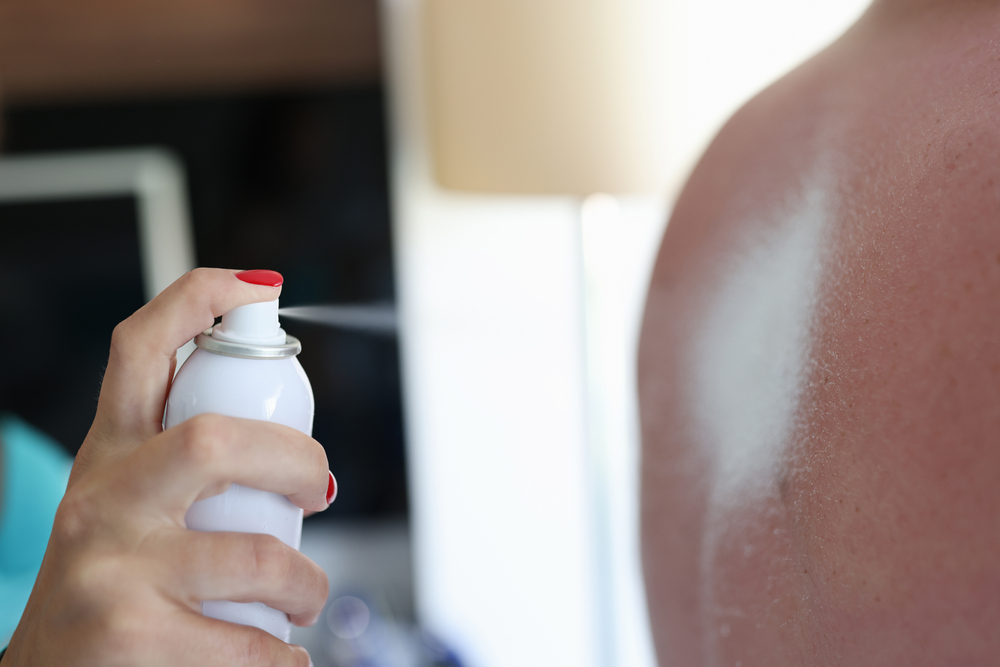In a recent ruling, a North Carolina federal judge has determined that Johnson & Johnson (J&J) must face a personal injury lawsuit filed by a father who claims that his 14-year-old son passed away from leukemia after prolonged exposure to J&J sunscreen products that were contaminated with benzene, a known carcinogen. The judge found that the amended complaint contains sufficiently detailed allegations and meets the necessary requirements to proceed, indicating that the question of admissible evidence will be addressed later in the litigation process.
Sunscreen Products Contained Unsafe Levels of Benzene
According to the lawsuit, the family discovered their son’s diagnosis of acute myeloid leukemia on April 15, 2021, and sadly, the boy passed away less than a week later. The father, Dory Brendan Hux, filed the lawsuit against J&J in April 2023, alleging that the repeated use of Neutrogena sunscreen, a brand owned by J&J, was the cause of his son’s illness. The amended complaint asserts that the sunscreen products contained unsafe levels of benzene, a known carcinogen.
The family states in the lawsuit that Dory Braylan Hux showed a talent for soccer and played competitively for roughly 11 years, until his diagnosis and untimely death. To protect him from the sun during practices and games, his parents used Neutrogena spray-on sunscreen, applying it two to three times per session. Believing in the product’s marketing claims and the brand’s reputation, they specifically chose Neutrogena Beach Defense, Neutrogena Cool Dry Sport, and Neutrogena Ultra Sheer aerosol sunscreen products.
The lawsuit alleges that J&J failed to adequately test its sunscreen products before bringing them to market, resulting in the presence of benzene. Benzene is a chemical commonly found in crude oil, cigarette smoke, plastics manufacturing, and pesticides. It has been classified as a carcinogen and linked to various types of cancer and other illnesses.
Testing Identifies Benzene in Sunscreen, After-Sun Products
It was independent testing conducted by Valisure, an online pharmacy, that initially revealed the presence of benzene in multiple sunscreen brands, including those manufactured by J&J. Valisure filed a Citizen Petition with the U.S. Food and Drug Administration (FDA) in May 2021, urging further regulation of benzene in sunscreen and after-sun care products. The petition highlighted the dangers of benzene exposure, particularly through topical application, as sunscreen ingredients can be absorbed into the bloodstream.
Judge Rules Against Johnson & Johnson
J&J attempted to have the Hux’s lawsuit dismissed, arguing that the amended complaint lacked sufficient detail. However, the judge disagreed: “The 44-page amended complaint contains sufficiently detailed allegations, which — when taken as true — set forth plausible claims for relief arising out of defendants’ alleged misconduct,” the judge stated in a recent order. “The allegations contend plaintiff’s son exclusively used specific brands of defendants’ products for an extended period of time, and the other allegations and exhibits to the amended complaint plausibly allege defendants’ products were contaminated and lead to his development of leukemia and his death.”
Benzene-Tainted Sunscreen and Potential Health Risks
This ruling against J&J highlights the serious nature of the allegations surrounding benzene-tainted sunscreen products. Benzene is a known carcinogen, and its unexpected presence in sunscreen raises concerns about the potential health risks associated with using these products. It is important for consumers to stay informed about the ongoing litigation and recalls related to benzene-tainted sunscreens. The FDA has issued alerts regarding the presence of benzene in certain sunscreen products, and several manufacturers, including J&J, have initiated recalls.
Sunscreen Cancer Lawsuit Information
Independent Sun Care Product Screening for Benzene Contamination, Environmental Health Perspectives
Facts About Benzene, CDC

